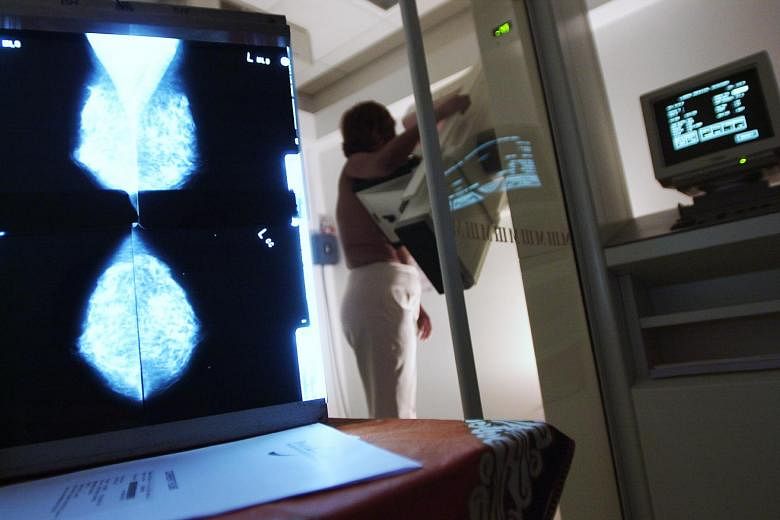Breast cancer is a disease that involves abnormal cell growth in the breast, which can spread to other parts of the body and cause health problems.
It is the most common type of cancer in women internationally. In Singapore, breast cancer accounts for almost 30 per cent of cancers in women.
Breast cancers can have different characteristics requiring different treatments, depending on the presence or absence of certain receptors.
The most common form involves hormone receptors such as oestrogen receptors and progesterone receptors.
About 70 per cent of breast cancers are positive for one or both of these receptors, meaning the patient's hormones play a role in the cancer's development.
Hormone receptor-positive breast cancers tend to be less aggressive and grow more slowly. These patients are likely to see better outcomes in the long term. Treatment will typically involve hormone therapy drugs such as tamoxifen, which blocks oestrogen receptors in the breast tissue.
HER2-positive breast cancers, or those that involve the human epidermal growth factor receptor 2 (HER2) protein, are less common, affecting between 15 per cent and 20 per cent of patients.
This type of breast cancer arises when the HER2 protein, which normally regulates healthy breast tissue growth, is produced in excess. It tends to be more aggressive compared with hormone receptor-positive cancers.
Drugs which block HER2 receptors may be prescribed to such patients.
Less common are what is known as triple negative breast cancers, which do not have receptors for oestrogen, progesterone or HER2.
These cancers, seen in about 15 per cent of patients, are particularly aggressive and are associated with higher rates of relapse and lower survival rates. Treatments usually involve surgery, radiation therapy and chemotherapy.
Misidentified cancers could result in unnecessary or insufficient treatment.
A false positive could cause a patient to receive treatment she did not need, while experien-cing the side effects of the drug or procedure she was given.
Meanwhile, a false negative could mean that she missed out on treatment she would have otherwise benefited from.
Rei Kurohi


